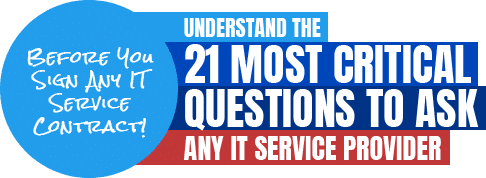
SaaS solutions are central to many organization’s business operations. Data produced and stored by cloud-hosted applications is of immense value. Yet for some reason, many organizations are still leaving the backup element to their SaaS vendors, which could lead to disaster for one simple reason. SaaS application, infrastructure, and platform providers do NOT owe it to their users to backup and restore their data – unless such terms are provisioned in your service level agreement (SLA).
They are only liable for the safety, security, and operation of their product and not the user data stored in it. Data protection is a shared responsibility. In a standard SLA, vendor duties only entail protecting the infrastructure from hardware and failure, power outages, and natural disasters (to mention a few).
In no way does this guarantee the total safety, availability, and recoverability of data. A 2023 Enterprise Strategy Group (ESG) report found that 53% of respondents had lost data on SaaS applications in the year before. Without backups and strategy, recovering lost, stolen, accidentally deleted, or ransomed data becomes nearly impossible.
With the overwhelming SaaS backup solutions today, decision-makers face more difficulty than ever in sourcing the best-suited solution to address the sharp rise of hybrid work needs, a growing user base and expedited digital transformation initiatives. This guide provides a fresh perspective and important considerations when selecting the right SaaS backup solutions for your business.
1. Establish Your Business’s Operational Backup and Recovery Needs
Strategic business initiatives are backed by solid strategies which always take into account both short and long-term needs. With the tens of SaaS backup solutions available today, it helps to narrow down your options to just the few providers that can satisfy your operational requirements.
Organizations face the need to ensure that day-to-day activity goes on uninterrupted. But then power outages, human error, ransomware attacks, and disasters happen. While these can’t be prevented 100% of the time, your operational backup strategy can help tip the scales in your favor.
Maintaining operational continuity after a disaster, human error, or a devastating ransomware attack underscores the reason why operational backups exist in the first place.
To identify your needs, ask the simple question, why? Why does your business require a SaaS backup solution? Also, evaluate your business’s current financial capacity. Your SaaS solution should provide the required capabilities and meet your IT budget without making radical concessions on data quality.
2. Analyze Your Provider’s Product Features and Service Level Terms
SaaS data backups are versatile but not always compatible with your SaaS product. Some vendors have made significant strides in integrating popular product suites such as Microsoft 365 and Google Workspace all the while sacrificing essential features. At the very least, your ideal SaaS backup will provide the features necessary for the type of data you want to secure.
For example, organizations that collect and process large volumes of data through Microsoft 365 may find it in their best interests to deploy a backup tool that offers advanced search and filters that help administrators find the specific data they need to restore. Regardless, standard SaaS backup solutions offer baseline features such as data encryption, flexible recovery options, and custom integration.
At this point, it is important to scrutinize the service level terms by different providers and ensure you’re not missing any fine print. Service level agreements provide more information on what’s covered by the vendor. Their responsibilities are clearly outlined within this document. But most generally, organizations are urged to take data backup and security measures into their own hands.
3. Evaluate Your Provider’s Data Protection and Security Measures

Business data should be kept safe and protected through reasonable cybersecurity measures, whether it is stored locally or in the cloud.
- Check your provider’s data storage and management practices. For most providers, data redundancy has proved to be efficient. Two or more copies of your business’s data are stored in separate locations and always available in case one copy gets compromised.
- Ensure that strict access control policies are established. Only authorized administrators should have access to your backups. Even so, some organizations have a zero-trust policy, where everyone is treated as a potential threat. Such measures limit your data’s accessibility and vulnerability to breach.
- Assess your provider’s backup and restoration protocols. Manual backup procedures can be cumbersome. SaaS backup providers with automated backup systems can ensure regular and consistent backups without the need for manual intervention.
4. Follow Up on Compliance with Industry Regulations
On the matter of security, shifting from onsite backup systems to cloud solutions does absolve you or your backup provider from compliance with regulations. SaaS backup providers should operate in compliance with industry-specific regulations such as HIPAA for health data protection and PCI DSS for card data protection.
Non-compliance may lead to hefty fines and costly (and avoidable) legal battles with aggrieved customers. For example, organizations that fail to comply with the GDPR could face a maximum fine of €20 million depending on the type and severity of the violation.
5. Weigh Your Provider’s Reputation and Reliability
SaaS data backup solutions’ expected performance can be weighed based on the provider’s reputation and reliability. A comprehensive evaluation of your provider’s performance, trustworthiness, and reliability dwells in customer feedback.
Enterprise SaaS backup users rate providers on these criteria:
- Ease of integration – Integration difficulties can ruin user experience. Constant service interruption could be a clear sign that your SaaS backup solution may not work seamlessly with existing applications and systems.
- Scalability and performance – Scalable SaaS data backups grow or shrink with your dynamic business needs. Ensure that the vendor’s solution accommodates your business’s growing data without compromising its workflows.
- Aggregated costs of the backup, software, and everything between – The overall cost of the backup solution must be factored into the equation to stay in line with the IT budget. Inquire about the total costs for implementing the solution from initial setup and configuration costs, upgrades, and customer support, to ongoing maintenance.
Last but not least, train employees on vigilant data management practices. Several reports expose human error as a leading cause of cloud data breaches. Employees with little to no training on your cloud-based solution are generally considered a weak link – no matter how foolproof your data security strategy is, it can never be trusted if employees remain ignorant of what constitutes clean data management practices.
Regular employee training may cover several elements of your disaster recovery plan, ensuring everyone knows their duties in the event of a data loss or cyber attack. Drills and simulations of disastrous events can be carried out to ensure that the employees fully grasp the response protocol. Such proactive action enables a coordinated response to emergencies.
Secure Your SaaS Data with BoomTech
The choice of a worthy SaaS data backup entirely depends on the specific needs of your business. It is important to remember that the security of your organization’s data is entirely your responsibility. If this is something your organization struggles with, it’s time to onboard a managed IT provider.At BoomTech, we help SMBs assess their immediate needs, source, and deploy top-of-the-line SaaS solutions to meet their dynamic demands.
Categories
Hear from Philipp Baumann, owner and founder of BoomTech:


